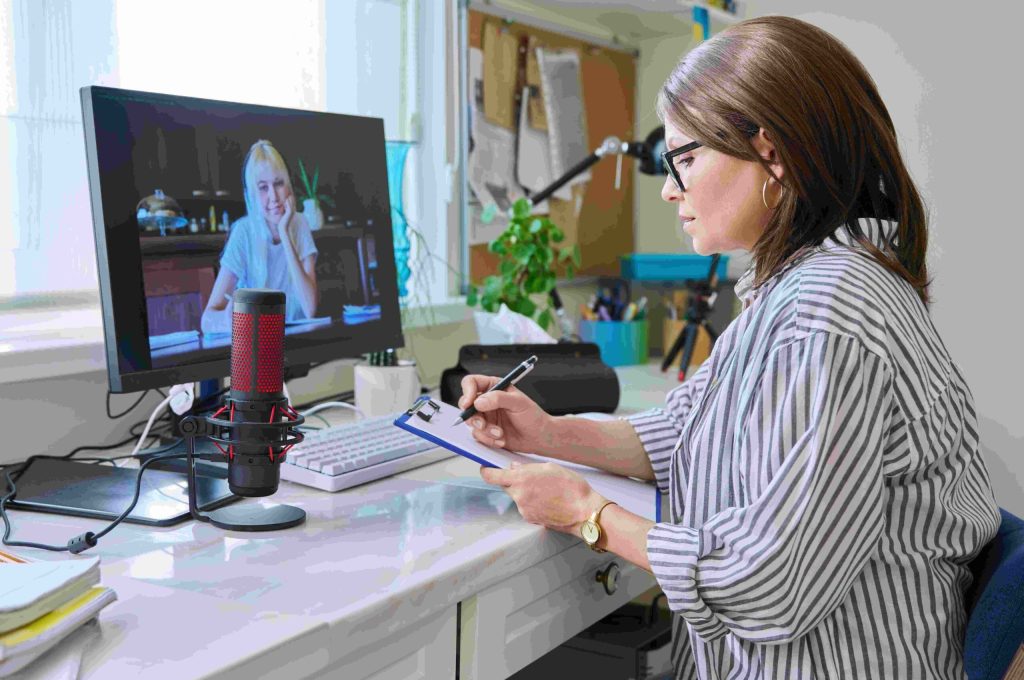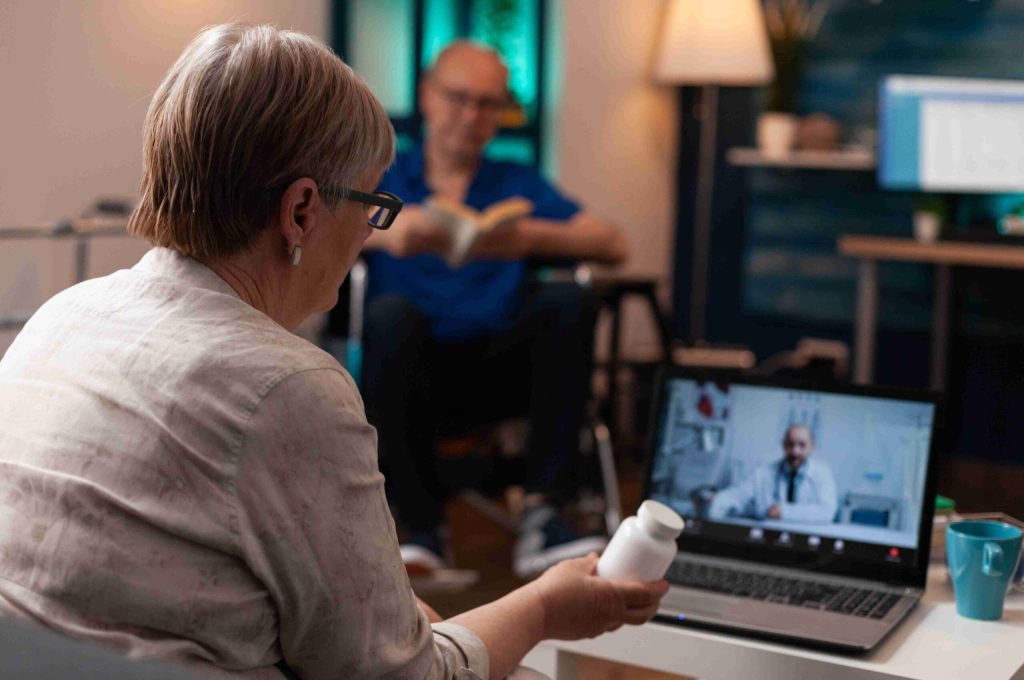Mental health is a crucial aspect of overall well-being, and seeking therapy can be a transformative step toward a healthier life. Deel Behavioral Health is committed to providing the best possible care, and that includes offering you the choice between teletherapy and traditional in-person counseling. In this blog post, we’ll explore the differences between these two approaches to help you make the right choice for your mental health needs.
Mental health concerns affect people of all ages and backgrounds, and seeking help is a sign of strength and self-care. At Deel Behavioral Health, we are dedicated to offering a range of options to cater to your unique needs. In this blog post, we will delve into the world of teletherapy and in-person counseling, shedding light on their benefits, considerations, and differences.
Understanding Teletherapy
Definition and Explanation
Teletherapy, also referred to as online therapy or e-counseling, is a method of receiving therapy and counseling services through digital platforms. This approach allows individuals to connect with licensed therapists and counselors remotely, typically through video calls, phone calls, or messaging apps.
Benefits of Teletherapy
- Accessibility
Teletherapy breaks down geographical barriers, making it easier for individuals in rural or remote areas to access mental health services. No longer do you need to commute long distances to reach a therapist’s office. This accessibility is particularly vital for those who may face challenges in accessing in-person services due to location or mobility issues. - Convenience
Scheduling and attending therapy sessions become more convenient with teletherapy. You can choose appointments that fit your schedule, and there’s no need to factor in travel time. Whether you have a busy work schedule, family commitments, or other responsibilities, teletherapy provides flexibility. - Comfort and Safety
Teletherapy sessions take place in the comfort and safety of your own environment. This can be particularly valuable during the COVID-19 pandemic, as it reduces the risk of exposure to the virus. Being in a familiar setting can also help some individuals feel more relaxed and open during their sessions. - Anonymity
For some individuals, teletherapy provides a sense of anonymity that can reduce the stigma associated with seeking help for mental health concerns. It allows you to receive support discreetly, which can be especially beneficial if you’re concerned about the opinions of others or your privacy.
The Role of Mindfulness in Mental Health
Definition and Explanation
In-person counseling is the traditional method of receiving therapy services, where individuals meet face-to-face with their therapist or counselor at a physical location, such as a therapy office or clinic.
Benefits of In-Person Counseling
- Face-to-Face Interaction
In-person counseling offers a direct, face-to-face connection between the therapist and the patient. This allows for a deeper understanding of non-verbal cues and body language, which can be essential in therapy. Therapists can pick up on subtle expressions and gestures that may provide valuable insights into a patient’s emotions and thoughts. - Immediate Support
In critical situations or crises, in-person counseling provides immediate support. Therapists can intervene quickly to ensure your safety and well-being. This level of immediacy can be crucial during times of high distress or when urgent intervention is required. - Personalization
Therapists can develop highly personalized treatment plans during in-person counseling sessions. Being physically present with the patient allows for a deeper connection and a better understanding of their unique needs. This personalization can lead to more effective therapy outcomes.

There were over 109 thousand fatal overdoses due to drugs according to the CDC in 2022




Comparing Teletherapy and In-Person Counseling
Effectiveness
Studies have shown that both teletherapy and in-person counseling can be effective in treating various mental health conditions. However, the effectiveness may vary depending on the individual and the nature of the condition. It’s essential to consider your specific needs and preferences when deciding which approach is best for you.
Patient Preferences
Patient preferences play a significant role in choosing between teletherapy and in-person counseling. Some individuals feel more comfortable and connected during in-person sessions, while others appreciate the convenience and privacy of teletherapy. It’s crucial to reflect on your own preferences and what feels most suitable for your therapy journey.
Therapist's Perspective
Therapists at Deel Behavioral Health have experience with both teletherapy and in-person counseling. They understand the nuances of each method and can guide you toward the most suitable option based on your needs and goals. Their expertise ensures that you receive the highest level of care, regardless of the format you choose.
Legal and Ethical Considerations
Confidentiality and Privacy
Both teletherapy and in-person counseling prioritize patient confidentiality and privacy. Therapists follow strict ethical guidelines to protect your personal information and ensure that your sessions remain confidential.
Licensing and Regulations
Therapists providing teletherapy services are licensed and adhere to regulations specific to online counseling. You can have confidence in the qualifications of your therapist, whether you choose teletherapy or in-person counseling. It’s essential to verify the credentials and licensing of your therapist before starting therapy.
Informed Consent
Informed consent is a critical aspect of teletherapy. Your therapist will explain the process, potential risks, and benefits, ensuring you make an informed choice about your mental health care. This transparent approach allows you to have a clear understanding of what to expect during your therapy journey.
Making the Right Choice
Factors to Consider
When deciding between teletherapy and in-person counseling, consider factors such as your comfort level with technology, scheduling flexibility, and the nature of your mental health concerns. Reflect on your personal preferences and what aligns best with your lifestyle and needs.
Personalized Recommendations
At Deel Behavioral Health, we understand that the decision can be challenging. We provide personalized recommendations based on your unique situation. Our goal is to help you receive the most effective and comfortable care possible. During a consultation, our therapists can discuss your options and guide you toward the right choice.
Seeking Professional Advice
Ultimately, the choice between teletherapy and in-person counseling should be made with the guidance of a professional therapist. We encourage you to reach out to us for a consultation and personalized advice. Our experienced therapists are here to listen, provide insights, and support you in making an informed decision about your mental health care.
Conclusion
In the pursuit of improved mental health, the choice between teletherapy and in-person counseling is a significant decision. Both methods have their advantages, and the right choice depends on your individual circumstances. Deel Behavioral Health is here to support you in making that choice and providing the care you need to thrive.
FAQ
How do I know if teletherapy is right for me?
Teletherapy can be suitable for individuals who prefer convenience, have busy schedules, or value the privacy of their own space. It’s also a viable option for those in remote areas. However, the best choice depends on your individual needs and comfort with technology.
What conditions can be treated through teletherapy?
Teletherapy is effective for a wide range of mental health conditions, including anxiety, depression, stress, relationship issues, and more. Your therapist will assess your specific condition and discuss the suitability of teletherapy.
Is teletherapy confidential?
Yes, teletherapy sessions are confidential. Therapists follow strict ethical guidelines and use secure, encrypted platforms to protect your privacy.
How do I schedule a teletherapy or in-person counseling session with Deel Behavioral Health?
You can schedule a session by visiting our website or contacting our office. We will assist you in finding a therapist and setting up an appointment that works for you.
Can I switch between teletherapy and in-person counseling if needed?
Yes, flexibility is essential in mental health care. You can discuss your preferences with your therapist and make arrangements to switch between formats if necessary.







